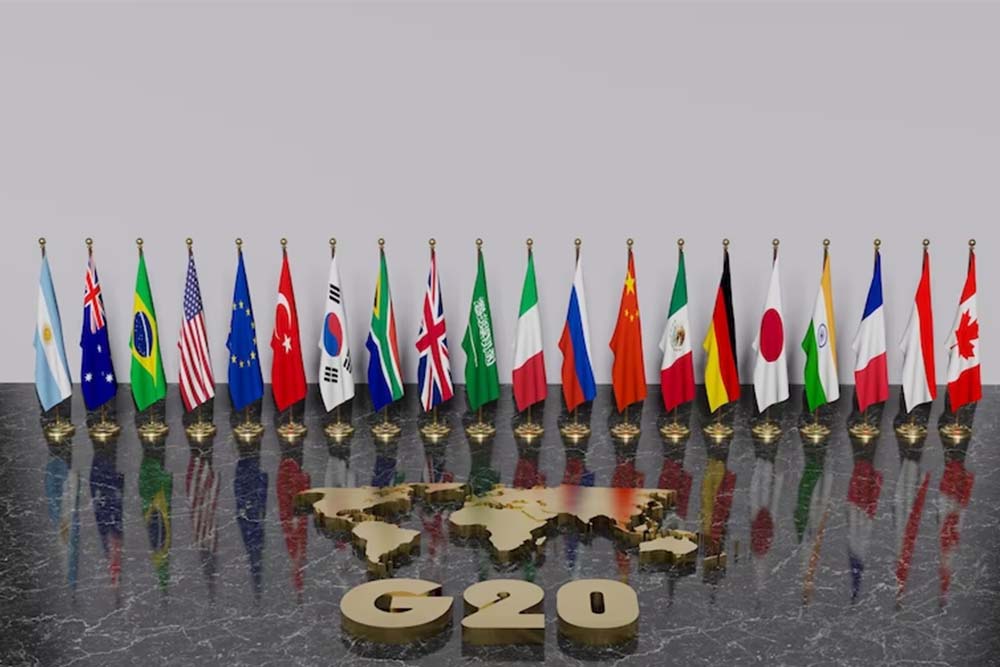Introduction
The heads of the 20 largest economies globally, collectively called the G20, are taking substantial steps toward establishing an all-encompassing international framework to govern cryptocurrency assets. During a two-day summit held in New Delhi, G20 members expressed their commitment to expedite the establishment of this cross-border framework aimed at enhancing transparency and cooperation in the crypto space. This landmark initiative, known as the Crypto-Asset Reporting Framework (CARF), is set to facilitate information exchange between countries starting in 2027.
A Global Consensus for Crypto Regulation
The G20 leaders, hailing from countries including Argentina, Brazil, Canada, China, France, Germany, India, Australia, Indonesia, South Korea, Turkey, the United Kingdom, Italy, Japan, Mexico, Russia, Saudi Arabia, South Africa, the United States, and the European Union, jointly represent a substantial segment of the global population. Their unanimous call for the swift implementation of ARF and amendments to the Common Reporting Standard (CRS) indicates a global consensus on the need for comprehensive crypto regulation.
The Crypto-Asset Reporting Framework (CARF)
The Crypto-Asset Reporting Framework (CARF) was first introduced by the Organization for Economic Cooperation and Development (OECD) in October 2022. This framework aims to give tax authorities greater visibility into cryptocurrency transactions, including identifying individuals involved.
Under CARF, participating countries will automatically exchange information on crypto transactions annually. Further it include, covering transactions occurring on unregulated cryptocurrency exchanges and wallet providers. This exchange of information is expected to enhance tax compliance and combat illicit activities involving cryptocurrencies.
Global Shift Towards Crypto Transparency
As can be seen, many countries have already introduced new disclosure standards for cryptocurrency transactions. However, in May, the European Union took a significant step by approving updated rules to align with CARF. Further, these rules mandate the inclusion of beneficiary names, distributed ledger addresses, and account numbers for the transfer of digital assets. This move by the EU reflects a growing commitment to ensuring transparency in crypto-related financial activities.
Endorsement of FSB Recommendations
In addition to endorsing CARF, the G20 leaders supported recommendations by the Financial Stability Board (FSB) in July. However, these recommendations pertain to regulating, supervising, and overseeing crypto-assets and global stablecoin arrangements. Further, the FSB’s guidelines set similar standards for stablecoins as those for traditional commercial banks. Further, it urge regulators to prohibit any activities that hinder the identification of involved participants.
Conclusion
The G20’s commitment to the Crypto-Asset Reporting Framework (CARF) and the broader adoption of global regulatory standards for cryptocurrencies demonstrate a growing recognition of the need for transparency and cooperation in the rapidly evolving crypto landscape. As we approach 2027, when information exchange between countries is set to commence under CARF, we can anticipate a more accountable and regulated crypto ecosystem that aligns with the principles of international financial stability and security. Further, this initiative marks a significant step towards a more transparent and secure future for cryptocurrencies globally.

